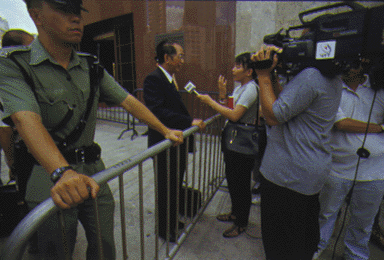Access to info as a basic rightBy Kevin Au By the end of 1997, the government had received 3,358 requests for information. Eighty-nine were rejected, according to the Home Affairs Bureau. Explained former legislator Christine Loh: “As a democratic institution, the Hong Kong Government should increase its transparency to the public.”
According to legal expert Rick Snell of the University of Tasmania in Australia, who was reached by email, the Code has a number of advantages: “Excessive secrecy at best encourages corruption, mal-administration and inefficiency,” said Mr. Snell. “Government administration is aided by informed input from citizens.” Under the Code, departments and public bodies must publish yearly details of their services, their performance pledges and the extent to which they have been met. For information not routinely published, individuals can make requests orally, in letter or by filling out a form. Mr. Raymond Leung, an access to information officer at the Student Financial Assistance Agency, said, “The guidelines of the Code are quite clear.” Normally, information is made available within 10 calendar days after a request is made. Maximum response time for complicated requests is 51 days. “We receive 10 to 20 requests monthly,” said Mr. Leung. “Most are students who want to check their records of applications.” Meanwhile, an officer of the Education and Manpower Bureau, Miss Christine Tang, said her bureau had received no requests since they implemented the policy. There are 16 categories of information to which public access is denied. Requests are denied if disclosure would harm national relations or defence. Details related to privacy, the judiciary and the Executive Council may also be denied. The Code has a provision for appeals in the event requests are denied. A formal complaint can also be made to an independent ombudsmen. Many countries have had so-called freedom of information acts for years. Sweden and the United States passed access to government information acts in 1776 and 1966 respectively. Calls for increased access to government information were made by legislators in 1995 in Hong Kong, but they were rejected by former Gov. Chris Patten. Mr. Patten insisted that the Bill of Rights did not grant the public access to government information. Also, legislation would incur extra administrative costs. According to Mr. Snell, ordinary citizens and public servants benefit most under such access to information schemes. They are able to access information held about themselves and their employment files respectively. Dr. Yu Xu, head of the Journalism Department at the Baptist University, also supports the implementation. “This Code shows that society is more democratic,” he said. |
